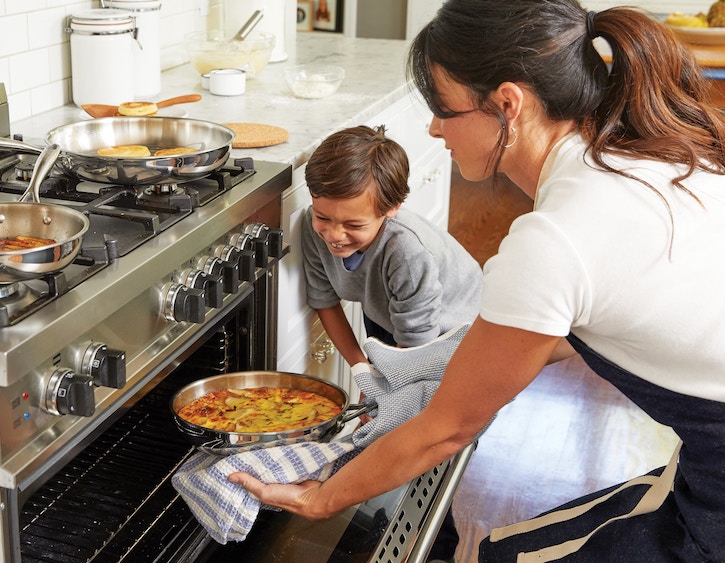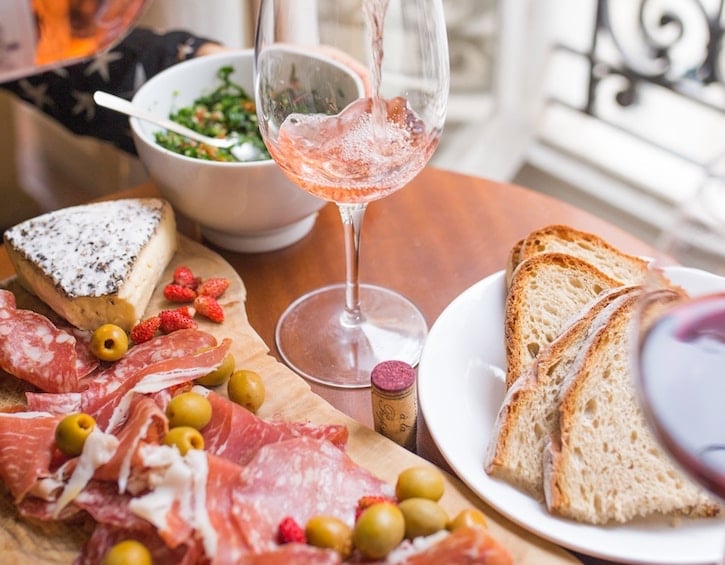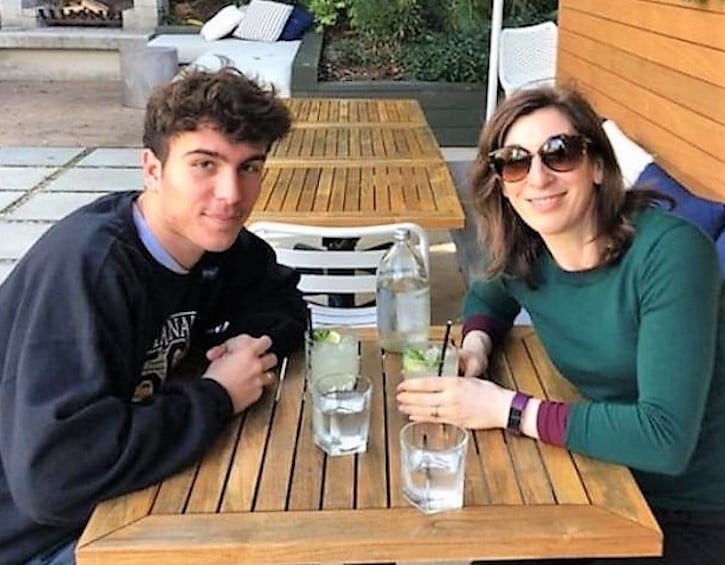
Want to raise kids who don’t throw food? Bonne chance!
French kids don’t throw food, elephants don’t forget, orange juice makes you fat. You’ve probably heard, immediately laughed off, or always wondered about one or more of those statements. The first has become a common topic of discussion with friends. I’ve often been asked about how French kids are brought up (along with that other legend about French women allegedly not getting fat), thanks in no small part to a couple of best-selling books.
There are a few rules I try to live by – one of them is not to give much credence to national stereotypes and the other is to offer parent tips only when asked. My parenting has, of course, been influenced by my upbringing (I was born and grew up in France) but also by my wonderful husband, who happens to be from the other end of the world. I don’t profess to be a classic French maman because we are a bi-cultural couple and, as our son has grown up, we have lived mostly outside our respective countries. He is a half-French child and the only food he’s ever thrown was stale bread to feed ducks at the park. So, maybe the stereotype is true? And maybe this is where I have to throw away my rule and offer some thoughts.
Read more: 10 Tips For Better Parenting: Why It Begins With Self-Care

Food = respect
To be honest, I’d never really thought too much about French food culture because it was all around me. Introducing it to my Kiwi husband and son over the years though has made me realise how food is a big part of everything we do, woven into life with so much tradition and expectation. The meal is a ritual in every way, from the habits around it to the special cakes or tartes at the end of it (made to mark this or that festival or region), bought during a Sunday morning stroll to the boulangerie and patisserie.
The questions from friends and discussions over many a Hong Kong brunch – and the observation of the odd tantrum, soothed by the intervention of an iPhone – got me thinking. French kids may occasionally want to throw food but they wouldn’t, because of the way we are raised to respect food and everything around it. The respect is more than just for the person who prepared or cooked it, but also for the person who grew the food, farmed it and sold it in the market. A meal isn’t just about nourishing your body. It is a tradition, a family experience or, what you might simply call, an unbendable routine.
Read more: Childhood Obesity: How To Help Your Child Eat Healthily

You are what you eat
Which is why, growing up I always saw that everyone pretty much ate the same. Kids’ meals were largely unheard of – when it came to eating you were simply a smaller person, with smaller portions. A quick bite in front of TV would be unthinkable.
My husband tells a story of his childhood and being made to stay at the dinner table until he finished his main course (according to him it was hours!) after his older siblings and parents had finished dessert and left, marooned there by his stubborn refusal. It’s a tale that surprised me – I wondered how it could happen because, for me, the whole meal experience was always something enjoyable, a ritual I looked forward to, even when mama served the family variations on vegetable soup every winter, for what seemed like night after night.
How mealtimes help kids grow up
As long as I can remember just about every meal at home was shared with my parents and other members of the family. And at school, lunch meant sitting at a canteen table with other children, sharing a three-course meal and all that goes with it. It’s habit-forming. And that is one of the founding influences of a French child and French parents. Mealtimes are where you develop a lot of your social skills, listen in and join discussions – and where there is a great emphasis on manners.
My son hasn’t lived in France but has made regular trips back, to experience the tastes and traditions there. Besides this, he did most of his schooling in French schools, where the multi-course canteen tradition was there every lunchtime. Even in my multi-cultural household, we’ve always kept a good routine. Even if we couldn’t all be at the table at once, we would ensure one parent was always present. At the table our son learned to not only open up and share, but also listen, knowing that if he was afforded the time to speak and be heard, then he would have to do the same with us without interruption. A shared meal is a great opportunity to mix the pleasure of food with manners, social skills, dexterity and independence. From the moment he could handle a spoon, we let our son feed himself, never mind the mess and the time it took.

Taking mealtime manners outside
Away from the dinner table, many similar rules apply for French kids. Having them come with you to a cafe for dinner from an early age or joining you for an evening with friends is just part of the growing up process.
I’ve never felt that my job as a mother was to entertain my child. Of course, I read countless books, played him music, took him to the park or movies. I‘d never leave home without a bag for him containing a toy, colouring book and crayons so he could busy himself when we were out meeting friends in restaurants or cafes.
We created a safe and diverse environment for him to grow up in; what he decided to do with the opportunities he had was up to him. Boredom won’t kill you – and, let’s be honest, most kids have more than enough toys, books and gadgets to keep themselves busy! You just need to give them enough time to let their imagination kick in.

Non means non
I was (and still am) a busy mother, so whenever I said “no” to my son, I knew it was for a good reason. I would keep my explanation short and wouldn’t get into a debate. My thought process is I am the adult and he’s the child; experience and reason guide my decision, end of discussion. I also allowed him to be angry with me and to say it. We had a few times when he was 12 or 13 years old (when they think they are old enough to do whatever they want and know everything) that I would say “no” and he would get angry. Naturally, so would I, but I would let him say what he wanted without interruption. Then I would go into the kitchen to make a coffee, he would go to his room, occasionally with a slam of the door, and sulk. After a cooling down period, we would agree to disagree and move on.
Read more: How To Coach Your Teens Through Tough Times And Problem Behaviour

The emphasis on studies
Schoolwork is a big issue in French families that I know and it’s also true within the French community in Hong Kong. I think that we have that shared preoccupation with Hong Kong parents. I remember our son telling me that most of his friends were told that marks under a certain level were unacceptable.
The French schooling system doesn’t leave room for the non-academic child – it is rigid, conformist and the school days are long and crammed. French parents can also generally be strict and demanding. Ironically, my more laidback Kiwi husband liked the fact that the French school was so intent on cramming in so much history and culture.
Read more: Expat Moving Guide: How To Pick The Right School For Your Kids In Hong Kong

I hope that I have found the right balance between my upbringing, my husband’s influence and what we have experienced in the varied countries we have lived and raised our son in. When he recently turned 18, I posted a Facebook message thanking my friends and family for their help because we couldn’t have done it without them – it really does take a village.
Now if only there was a book …French teenagers always make their bed!
Read more: Things You’ll Do Differently As A Second-Time Mum
 View All
View All











 View All
View All



 View All
View All

 View All
View All









